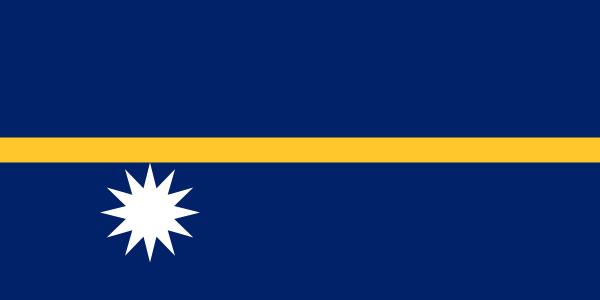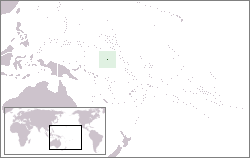 Nauru (pronounced /nɑːˈʊəruː/ nah-OO-roo), officially the Republic of Nauru and formerly known as Pleasant Island, is an island nation in Micronesia in the South Pacific.
Nauru (pronounced /nɑːˈʊəruː/ nah-OO-roo), officially the Republic of Nauru and formerly known as Pleasant Island, is an island nation in Micronesia in the South Pacific.
Its nearest neighbour is Banaba Island in Kiribati, 300 km to the east. Nauru is the world’s smallest island nation, covering just 21 square kilometres (8.1 sq mi).
Settled by Micronesian and Polynesian people, Nauru was annexed and claimed as a colony by the German Empire in the late 19th century.
After World War I, Nauru became a League of Nations mandate administered by Australia, New Zealand, and the United Kingdom. During World War II, Nauru was occupied by Japanese troops who were bypassed by the Allied advance across the Pacific, and after the war ended, it entered into trusteeship again. Nauru was declared independent in 1968.
Throughout the first half of the 20th century, Nauru was a “rentier state”. Nauru is a phosphate rock island, with deposits close to the surface, which allow for simple strip mining operations. This island was a major exporter of phosphate starting in 1907, when the Pacific Phosphate Company began mining there, through the formation of the British Phosphate Commission in 1919, and continuing after independence.This gave Nauru back full control of its minerals under the Nauru Phosphate Corporation, until the deposits ran out during the 1980s.
For this reason, Nauru briefly boasted the highest per-capita income enjoyed by any sovereign state in the world during the late 1960s and early 1970s. When the phosphate reserves were exhausted, and the environment had been seriously harmed by mining, the trust established to manage the island’s wealth became greatly reduced in value.
To earn income, the government resorted to unusual measures. In the 1990s, Nauru briefly became a tax haven and illegal money laundering centre. From 2001 to 2008, it accepted aid from the Australian government in exchange for housing a Nauru detention centre that held and processed those who had tried to enter Australia in an irregular manner.
From December 2005 to September 2006, Nauru became partially isolated from the outside world when Air Nauru, the only airline with service to the island, ceased to operate. The only outside access to Nauru was then by ocean-going ships. The airline was able to restart operations under the name Our Airline with monetary aid from Taiwan. The island has one airport; Nauru International Airport.

Notes from Wikipedia








